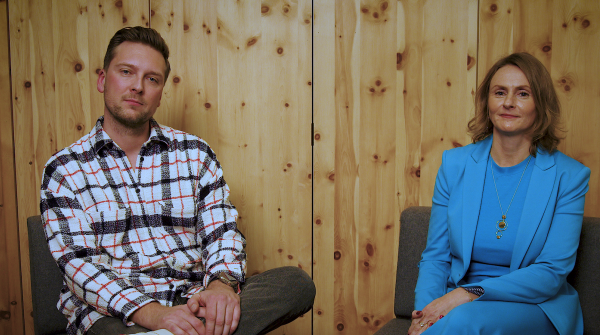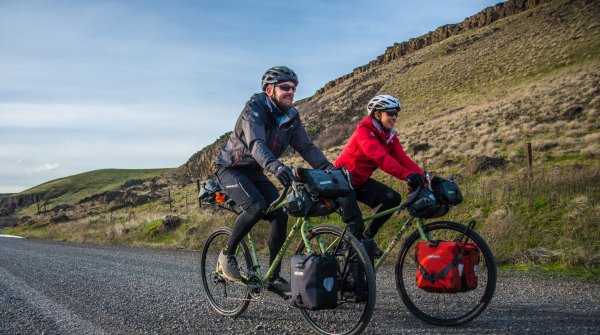When applying for a job in the sports business, the employer expects you to be aware of your own skills - and to want to use them profitably for the company. These skills should already be evident from the tabular resume. In addition, there are a few other important points in the application process that you should pay attention to.
These tricks will help you score points when applying to a sports company:
- The right outfit for a job interview
- The right appearance
- Staying athletic: the right posture
- Good preparation
- Guide to preparation: Knowledge is everything
- Training soft skills
The first impression is the most important. That's why the outfit at the job interview must match the position you're aiming for, the company and, above all, your personality. Anyone who "dresses up" feels insecure and radiates this.
Anyone who has already taken a look around ISPO Munich knows that a tie and suit are not absolutely essential in the sports industry. Sporty, elegant clothing is recommended for the interview. There is nothing wrong with a clean, plain pair of jeans. It is therefore permissible to be more casual in a sports company than, for example, when applying for a job at a bank.
But please do not exaggerate. The interviewers will, consciously or unconsciously, infer your later appearance from the clothes you wear. Sports shoes are not an impossible choice when applying to a sports startup, but they are rather inappropriate in an interview for a high-level position at a renowned sports company.
Remember, you want the company to see that you are serious about your application.
Every job interview is a balancing act between respectful restraint and a confident, but never put-upon or even arrogant appearance. Objectivity is just as important as casual small talk.
For your application to a sports company, this means: establish a positive connection with the person you're talking to. You can be pretty sure that your potential employer is a sports fan or enthusiast. A high-profile sporting event took place over the weekend? Excellent, that's a great thing to chat about (in a positive way). Is the recruiter a passionate triathlete? Ask about his best race and express respect for his performance.
There is a certain etiquette to follow in any job application. It starts with the right physical distance and doesn't stop at politeness by any means. If in doubt, it's worth investing a few hours and euros in a career coach.
Don't forget: As in hardly any other industry, personal sympathies play a major role in the emotionally charged sports business. If you apply as a sports psychologist, for example, you have a clear advantage and can use your profession to your own advantage right away. The employer must feel that you fit into the existing team.
A trained body is a definite plus when applying for a job in the sports business. If you are a successful athlete, you should also let this flow into the interview without coming across as cocky.
But even if you're carrying around a few kilos too much, that's not a tragedy. Because your posture is much more important than huge upper arms or a trained belly. And this can be improved quite simply.
It's not called "body language" for nothing, because your posture says a lot about it. If you have self-confidence, you radiate it. You are rather nervous before a job interview? Use the ultimate trick of sports stars, who take courage and reflect on your skills in a quiet place before an important competition.
During the interview, avoid squatting tensely on the edge of your chair, crossing your arms, or constantly grabbing your face. Sit up straight but relaxed, look friendly at your interviewer and keep your hands steady. Underlining gestures are allowed.
Remember: You are applying for a sports job, so it is definitely an advantage if you don't appear so awkward.
When you find yourself in the interview and the posture is right, you should remember what you hopefully worked on in preparation. It is a legitimate and effective trick to put yourself in the position of the employer or HR department in advance of the interview.
In the best case scenario, you'll have worked out a little spreadsheet: Analyze the job offer in detail. In this way, you can identify the expectations of the other party and then write the individual points in a column. Behind it you can now list what you have to offer in order to meet the corresponding requirement.
You have an obvious weakness in your resume? Be prepared to be asked about it. Denying the deficit would be fatal. Rather, emphasize that you are eager to do better in the future.
You can take a few days between the preparation and the actual interview. This minimizes the risk of your answers coming across as learned and wooden.
Remember: You should check each of your answers for the following three words: Team spirit, motivation, self-confidence. These are the guiding principles of the sports business.
In the best case, you didn't even have to respond to a job offer, but the sports company approached you and knows your resume inside out. Or at least you have been recommended by a third party. If not, it is even more important not to fall into the most classic of all personnel traps: you do not know the company you are applying to well enough.
Preparation should never be underestimated. Study the company and the advertised position intensively. If you are applying to Adidas, Puma or Nike, you should know the company history. Anyone who wants to make a career in a sports startup must have familiarized themselves with the founding idea.
But you should not only know the sports company, but also the industry. It's best to inform yourself in advance in the relevant trade media - at ISPO.COM for example, you can read the latest news and background reports every day(also as in the newsletter by mail).
Remember, for the sports job you're interested in, there are probably many applicants. Your potential employer, like the coach of a professional team, has many options. You should convince them that you can help the team quickly.
The tabular resume is your business card and therefore the most important document you send to the company when applying for jobs. Your resume should be tailored specifically to the sports job you are aiming for. These five tips are therefore important to keep in mind.
The right form
Formalities are important when applying for a job offer, because there is usually little time when the personnel department is sifting through your application. Often seconds are decisive. If the presentation is overloaded, faulty or the CV lacks structure, the CV will quickly be rejected.Select suitable topics
Personal data that match the skills sought in the job type can give a decisive advantage over other applicants.
Caution: copying text passages verbatim from the job offer into the CV is considered a no-go and leads to many employers in the sports business.Bringing the right skills
Sports job applicants should bring both hard skills (education, studies, work experience, etc.) and soft skills ( enthusiasm for sports, self-confidence, ability to work in a team, etc.). Skills should be clearly evident and backed up with examples where appropriate.Avoid stumbling blocks
Decision-makers in human resources attach importance to the fact that the resume shows a "red thread". However, this does not mean that "detours" in their CV are taboo - after all, they contribute to the personal wealth of experience. Obvious "gaps" in the CV require a brief (!) explanation.Stay authentic
Lies have short legs. If untruths come to light, this is a knock-out criterion! You will be invited if you have the professional competence and can prove it conclusively, but only as long as a sympathetic colleague is assumed to be behind the sought-after expert.
Don't forget: Have someone check your CV for any mistakes before you send it off.
Soft skills are about dealing with yourself and others - willingness to compromise and assertiveness, self-esteem, and respect for the work of others. Many of these traits are deeply rooted in personality. They are necessary to do a good job. And they are difficult to change. Those who demonstrate strong soft skills have a distinct advantage when applying for jobs and later in their careers.
Here are the most important soft skills for job applications and careers in the sports industry:
- Team spirit
- Strong communication skills
- Intercultural competence
- Perseverance
- Self-confidence
Don't forget: Soft skills should already be built into cover letters and letters of motivation. Always keep in mind: recruiters have to decide very quickly who brings the necessary confidence for a career in the sports industry and may come to the interview.
- Awards
- Mountain sports
- Bike
- Fitness
- Health
- ISPO Munich
- Running
- Brands
- Sustainability
- Olympia
- OutDoor
- Promotion
- Sports Business
- Textrends
- Triathlon
- Water sports
- Winter sports
- eSports
- SportsTech
- OutDoor by ISPO
- Heroes
- Transformation
- Sport Fashion
- Urban Culture
- Challenges of a CEO
- Trade fairs
- Sports
- Find the Balance
- Product reviews
- Newsletter Exclusive Area
- Magazine








